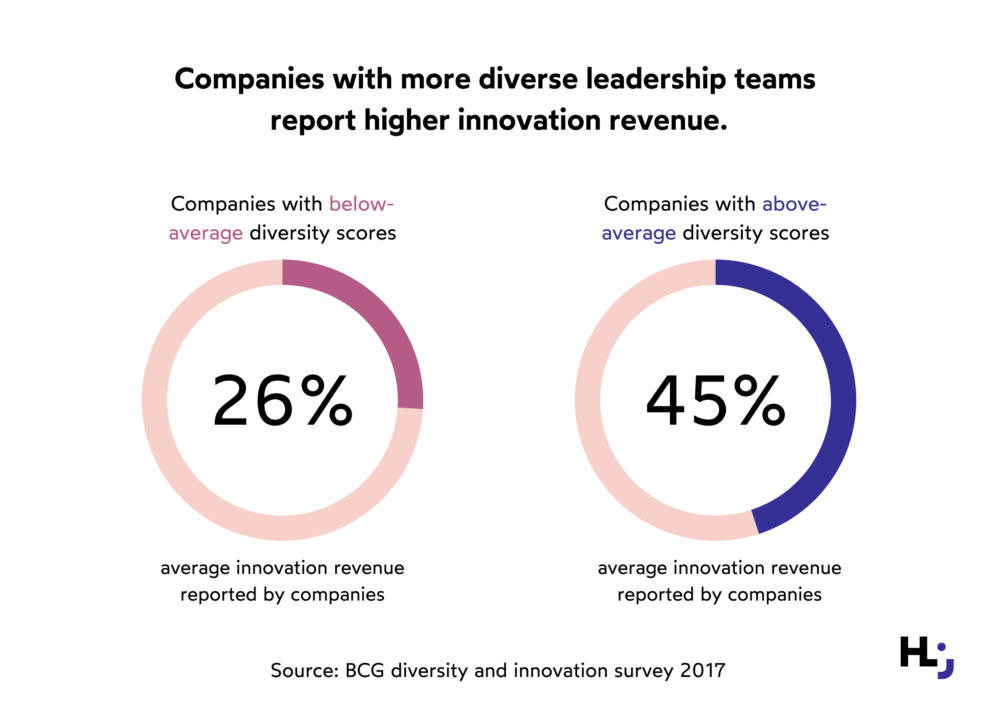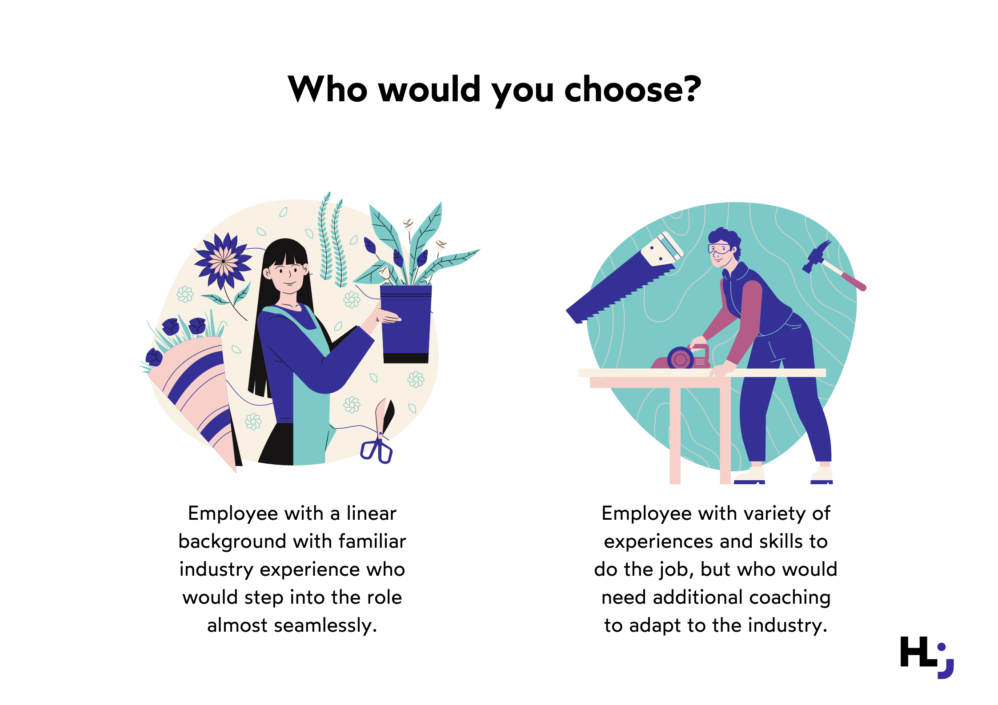Why you should consider hiring unconventional talent

Companies that hire unconventional talent perform better and generate higher profits than their less diversified competitors.
Recently, Lisa Frank, a recruiter and career coach from Indiana, USA, shared an insightful story on her LinkedIn wall.
She was evaluating two candidates for a job. One had a linear background with similar industry experience, while the other held a variety of different types of roles. The person had many skills to do the job but would need additional coaching to adapt to the industry.
Which candidate do you think they chose?
What unconventional talent means
Unconventional talent can be people who don’t have a usual professional background, come from a different industry, or have no formal education.
Each of these factors can be perceived as either an obstacle or an opportunity. Leading companies such as Apple, Google, and IBM have decided to drop college degree requirements. As a result, they have created more diverse teams with unique perspectives. They test the skill sets required – and with people analytics data, they can see how they perform.
And what about hiring someone who doesn’t have industry knowledge? “I would say skill sets are more important than knowledge of the industry. If someone has transferable skills, they can use them anywhere – both in a warehouse and on a technology team,” says Daniel Aduszkiewicz, CEO and Co-Founder of Human Panel.
Why do companies hire unconventional candidates?
In today’s highly competitive job market, companies risk hiring candidates who don’t meet all the standard requirements. Why?
First, because they want to be more inclusive. When you look at the data, you see that more diverse companies are more innovative and perform better than others. For example, the McKinsey report “Diversity wins: how inclusion matters” showed that gender-diverse companies outperform their more homogeneous counterparts by as much as 48%. Culturally and ethnically diverse organizations also outperform their peers by 36%.

Another motive is that employees today focus more on cognitive skills than hard skills – how quickly people learn and how easily they switch context between different projects. That’s because the skills needed today may not be helpful in the future. According to research, most jobs will require ten new skills within 18 months, and 65% of today’s jobs won’t exist in 15 years.
The third argument is that hiring non-traditional candidates is like cutting a diamond – especially if there are resources to train and teach them. For example, if someone has worked in customer support, they will likely be a good base for a salesperson. And their experience is expected to be more valuable than a college degree.
“Finding someone who fits the description perfectly or has already done tasks you want that person to do is a dream scenario. But that only happens in a perfect world. Today, with the power of data, you can test someone’s skills and identify candidates with the potential and develop them within your organization,” Daniel Aduszkiewicz comments.

Where can you look for unconventional talent?
Unconventional candidates mean you need to use unconventional recruiting techniques or source talent from non-traditional sources. For example, some recruiters do research based on candidates’ LinkedIn profiles, specifically in the area of interests and hobbies.
Others search for candidates at themed events and competitions or even in closed social media groups. One of the most successful security hires on Gusto, the staffing platform for 100,000 small businesses across the U.S., was a financial analyst who excelled in a cybersecurity contest.
“Opportunities like this give you access to a large talent pool. Of course, they work according to different principles than job ads, but on the flip side, you can use these social environments to your advantage,” says Daniel Aduszkiewicz. “Participating in certain events or virtual groups can help you find people who wouldn’t normally fit your criteria,” he adds.
Wrap-up
With the employee market and talent shortage worldwide, hiring non-traditional candidates can bring your company certain benefits. They include:
- Solving the talent shortage problem.
- Making your company more inclusive and diverse.
- Improving your company’s performance.
Of course, as a company or as an HR leader, you need to understand what is adequate for your company. To achieve this, look at data. “Data will give you hard evidence about which skills and talents are the most powerful. And which ones are also the most cost-effective,” Daniel Aduszkiewicz concludes.
And if you’re curious about which candidate was selected by Lisa Frank and her team – that’s the company’s secret. But if you want to win the ongoing war for talent, remember that this is the time to diversify, refresh and renew your teams. Just like Lisa said, “That resume you’ve been overlooking could be the very needle in the haystack you didn’t know you were looking for!”
Would you like to track the best sources of your candidates? Structure and organize data about their background and skills? Contact us at Human Panel and see what solutions we can offer you so that you could make better, faster, and smarter decisions. Fill in the short form below and change the way you manage HR forever.




